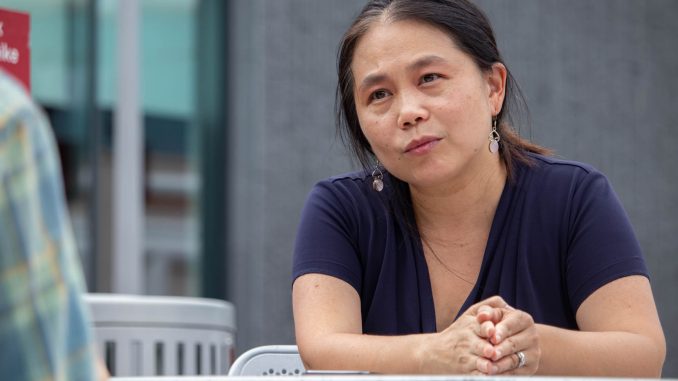
Understanding countries’ involvement in global economic development can be difficult to understand. Still, Roselyn Hsueh wants to explore it more.
Hsueh, a professor of political science at Temple University, will leave in Jan. 2021 to spend two years in India, Russia and Mexico to research their path to economic liberalization after receiving the Global Scholar Award from the Fulbright Foundation in August. Her research will explore similarities and differences between the countries’ economic liberalization, or loosening of state control of the economy, since the 1990s, she said.
“The puzzle is, even though the pressures are similar, what we find is that countries have had very, very different pathways to globalization,” Hsueh said.
Global Scholar Awards provide funding for academics in the United States to complete regional or multi-country projects over the span of one academic year, or two consecutive years, according to Fulbright Foundation. Scholars apply in September, and their projects are finalized in June of the following year, if selected.
The Global Scholar Award will cover travel and living costs for Hsueh and her research team while she is abroad, according to the Fulbright Foundation.
The research will expand on the insights of her first book, “China’s Regulatory State: A New Strategy for Globalization,” published through Cornell University Press in 2011. In the book, Hsueh examined China’s market development through the lens of the telecommunication and textile industry, she said.
“With the new research, it’s expanding outward looking at other countries and specifically other emerging powers such as India and Russia, and seeing if there were similar patterns across these emerging economies,” said James Frick, a second-year political science PhD student who worked as a research assistant on Hsueh’s first book.
Hsueh’s time teaching Frick added to his knowledge of Chinese political and economic development, which is his primary area of academic focus, he said.
“It helped me understand why maybe, why [the people of China] are establishing certain controls at the domestic level, and it gives me a little more insight,” Frick said.
Felix Puemape, a second-year political science PhD student and a research assistant for Hsueh, said he thought her research provided important information about how liberalization applies across countries.
“Usually free market reforms are seen as processes that are implemented in a standard way across countries,” Puamape said. “However, what Dr. Hsueh highlighted is how the decision-makers do this process in a more nuanced way.”
Hsueh said the funding provided by the award to physically travel to the countries she’s studying will allow her to conduct extensive field work, which she said was an important part of the research.
“The systems or structures I’m talking about, and then how we interact with individuals, individual behaviors and motivations and interests and values and identities, you really can’t get that unless you go and talk to people,” Hsueh said.



Be the first to comment